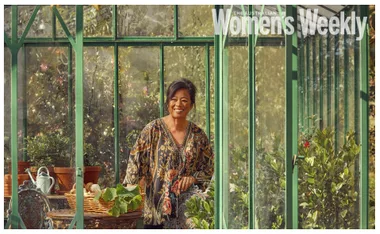With barely a bead of sweat on her brow, Ash Barty walked off the tennis court in Shenzhen in November 2019 and straight into a packed press conference, the eyes of the world’s media trained on her.
Minutes earlier she’d proudly held aloft the coveted Billie Jean King Trophy after winning the Women’s Tennis Association Finals, and with it the largest prize cheque awarded to any tennis player in history, male or female.
It capped off an extraordinary year for the then 23-year-old who had won the French Open in June and became the number one female tennis player in the world soon after.
When pressed about how she’d spend the $6.4 million winnings, she shrugged her shoulders and said she’d “probably spoil” her three-year-old niece Lucy and two-year-old nephew Oscar with a new swing set for their Queensland backyard.
“I have everything I need,” she said before adding thoughtfully, “Money can’t buy time. The amount of zeros I have in the bank doesn’t change how I’m going to spend my off-season with my family,” a broad smile sweeping across her face at the thought of a cold beer on the back patio of her Mum and Dad’s home in Ipswich.
Those closest to her say this is Ash Barty, a Vegemite-loving girl-next-door who is as much at home playing backyard cricket as she is slaying the world’s best on a Grand Slam centre court.
And these genuine qualities have triggered a surge of interest in Australian tennis, the likes of which hasn’t been seen for decades, lovingly dubbed the ‘Ash effect’.
From record numbers of juniors taking to the court to bumper box offices sales for the Australian Open and a sense of self-belief sweeping through the ranks of the sport, Ash Barty is inspiring a golden age of Australian tennis.
“I’m just working as hard as I can to be the best I can be,” she tells The Weekly. “It’s a beautiful game and it’s a privilege to play it.”
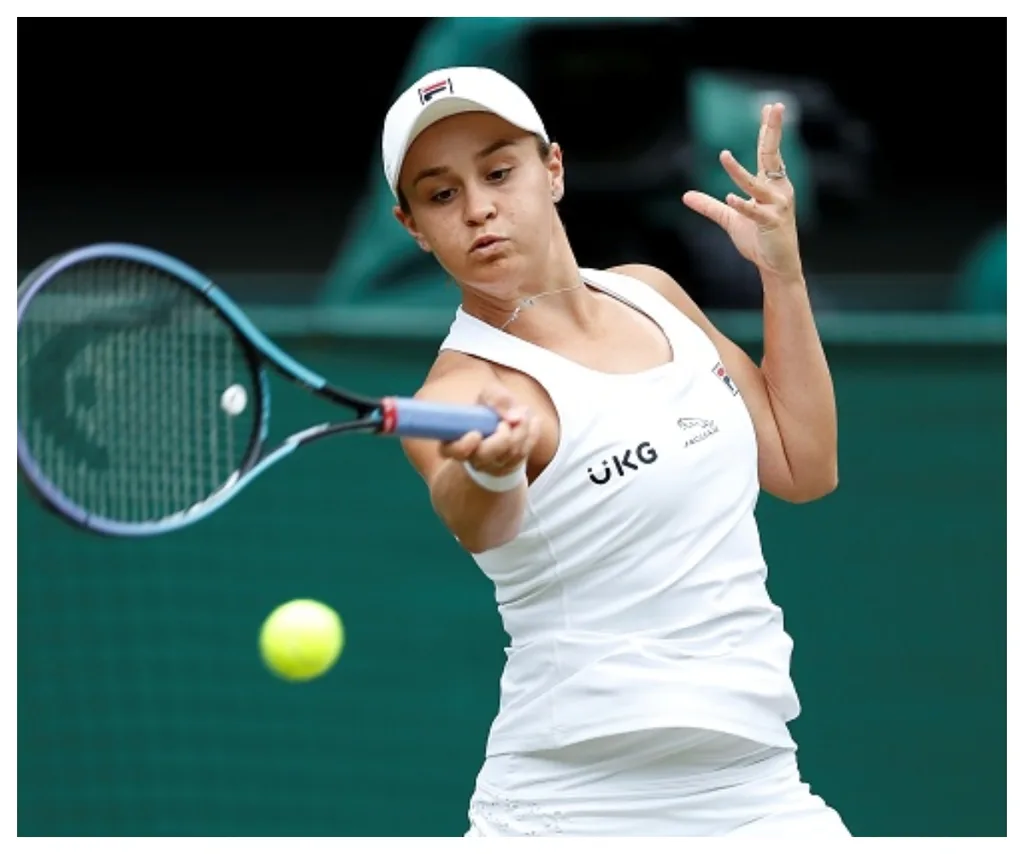
“It’s a beautiful game and it’s a privilege to play it.” Ash on her love of tennis.
(Getty Images)It’s a warm summer Saturday afternoon and the world’s number one female tennis player is doing the vacuuming.
“I love cleaning!” she enthuses. “I find it very calming and therapeutic, probably because I spend so much of my year in hotel rooms and I don’t get to do those normal things. So when I’m home, I turn on the TV or some music and off I go – I love it.”
One of the key things Ash learnt about herself during her highly publicised break away from tennis in 2015 was the need to find her “happy space”, the sense of “normal” she craves during the 40 weeks a year away from home. She often barely plants roots in a hotel room before jetting to the next tournament, and although she has established rituals to make herself comfortable, it’s never quite the same as feeling the couch grass between your toes and breathing in the salty Queensland air.
“This is where I recharge,” she says of the home she shares with her partner of three years, Garry Kissick, and their Maltese cross Shih Tzu dogs, Affie and Chino, near Springfield on the outskirts of Brisbane.
“I’m the crazy dog lady who FaceTimes them while I’m away so they can hear my voice,” she laughs. “I miss them like mad so I FaceTime them every day!
“Being here with Garry and the dogs and my family is the best way to cap off a week or celebrate a result, and being able to be home where my family is, I find I can really refresh myself quite quickly.”
At the age of 12, Ashleigh Barty was only half the size of most of her opponents. That’s because she’d beaten everyone in her own age group and the age group above her. Not yet a teenager, the pint-sized powerhouse was competing with boys 16 years and older, and barely giving them an inch.
By 14, she was on a plane to Las Vegas to meet Steffi Graf and Andre Agassi, where she got to train with Agassi’s legendary ‘secret weapon’, trainer Gil Reyes.
“It was a week in my life I will never forget,” she says. “It was a lot of fun and at that age I was a sponge. I took a lot of information on board.”
A year later she won the junior Wimbledon crown. Hundreds of fans gathered to welcome her home at Brisbane Airport and virtually overnight a tidal wave of attention and expectation landed with a thud on her young shoulders.
Big things were expected of her, but the following year didn’t go to plan. She suffered niggling injuries and struggled to find form. Exhausted and overwhelmed, after years on the road, she took a break from the game, retreating to the family’s Ipswich home to refresh her body and mind. For fun, the talented athlete took up cricket and was snapped up by Brisbane Heat. She scored a stunning 63 runs in her second match.
It was on the cricket pitch, under the Australian sun, that her love of tennis returned, and less than three years later, she became the world’s number one, the first Australian woman to achieve top ranking since her idol, Evonne Goolagong Cawley, in 1976.
“I took too much on board too young,” she says reflecting on the whirlwind time in her life after her Junior Wimbledon win.
“I couldn’t filter what was right for me, but I’ve now learnt how to do that and I understand that pressure isn’t really a thing for me.
“For me, competing is about trying to be the best I can be and if I give it a good crack and do the very best I can on any given day, that’s all that matters. Now all the white noise doesn’t really bother me too much.”
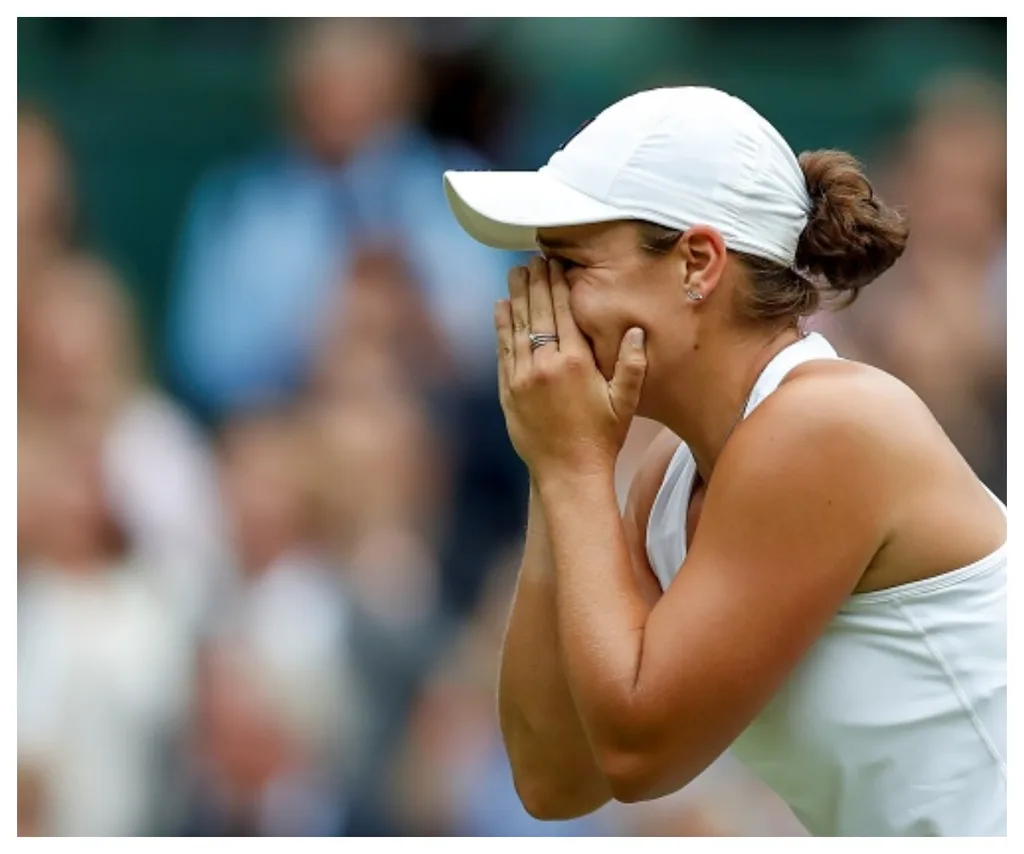
“For me, competing is about trying to be the best I can be and if I give it a good crack and do the very best I can on any given day, that’s all that matters.”
(Getty Images)Far from being a precocious child prodigy with pushy tennis parents, it was in fact Ash who begged her parents, Josie and Rob, to allow her to take to the court.
She’d mastered netball with her sisters, Sara and Ali, and was a dab hand at hockey too, but she loved “playing with sticks” and quickly found her feet on the tennis court. Trophies soon began piling up at the Barty home but Sara says Ash insisted they be donated back to her local tennis club to be recycled.
“They’d take the plaques off and rebadge them for the next junior winners,” she says. “Trophies have never meant anything to Ash. She played because she loved it.”
Today, not a single trophy graces the bookshelves of her home, there are no fast cars parked in the driveway, no flashy displays of her multimillion-dollar winnings.
“The trophies are all at Mum and Dad’s – they enjoy them,” she says. “When I come home it’s about being able to switch off tennis, to completely relax. Tennis for me is about the memories I make, more so than trophies – it’s never been about trophies.”
Tennis Australia Chief Executive Officer Craig Tiley says Ash Barty’s very genuine, down-to-earth charm is fuelling an unprecedented boom in Australian tennis.
“There’s no doubt about the Ash effect, no doubt!” he says. “Ash is a superstar – the best in the world – but she’s a great person too and that’s a big part of her appeal. People love watching her play because she has such a beautiful game, but we love her character too.
“Australians are right on board Ash’s journey and she is creating a legacy which will last long beyond her own career.”
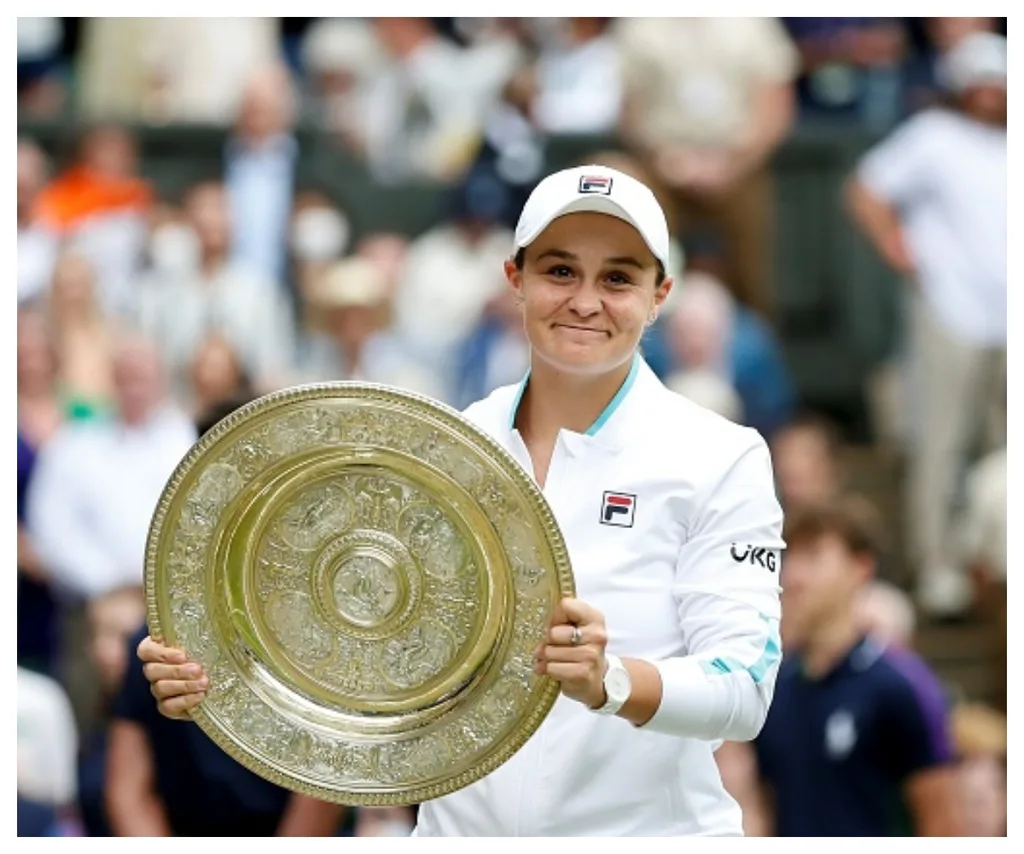
“Ash is a superstar – the best in the world – but she’s a great person too and that’s a big part of her appeal.” – Tennis Australia CEO Craig Tiley.
(Getty Images)On a wet Sunday morning in December, when most of Melbourne is still fast asleep, the nation’s most talented young women tennis players have gathered in the boardroom at Tennis Australia HQ.
During a secret briefing, they analyse the strokes and techniques of their international rivals, swap war stories about individual players and share game intel in the hope this will give them the extra edge needed to follow in the footsteps of their mate Ash Barty.
It’s part of a long-term game plan Tennis Australia began implementing more than a decade ago to bring the top Australian players together as often as possible and create a sense of family, nurturing the juniors through the ranks and mentoring them closely. The philosophy is to build the human being, as well as the player.
“Ash’s success gives all of us a greater sense of self-belief,” says Kim Birrell, 23. “She lifts us all and gives us the confidence to believe that if we work as hard as Ash, we can follow in her footsteps.”
A fellow Queenslander, Kim has trained with Ash for many years and says that she hasn’t changed from the day they met playing juniors.
“She is so rare. She walks into the gym, chats about her dogs, chats with everyone about what’s going on in their lives. Sometimes you pinch yourself thinking, ‘Hang on, she’s the world number one, she’s a grand slam champion!’ But that’s Ash.”
It’s 18 degrees and overcast in London when Ash smashes through to win the first game in her Wimbledon final against Karolina Pliskova, 40-0, and then goes on to take the match. Winning the Wimbledon trophy is an immense personal achievement, fulfilling Ash’s goal to honour her mentor, Evonne Goolagong-Cawley, on the 50th anniversary of her own Wimbledon win.
“But, you know,” Craig says, “regardless of how she plays, Ash Barty is the same person day in and day out, and that’s what makes her so special.”
True to form, Ash is unfazed by the ‘white noise’ swirling around her as she stands on the hallowed grass of Wimbledon to receive the prize of which she’s dreamed since she was a child.
“I can’t wait to get home to my family in a few months’ time and really celebrate,” says the proud Ngaragu woman with that absolutely humble, joyful smile.
Ash is a global tennis star now but as she said to The Weekly: “At the end of the day, I’m just Aunty Ash.”
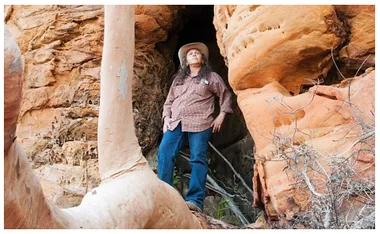
.jpg?resize=380%2C285)
.jpg?resize=380%2C285)
